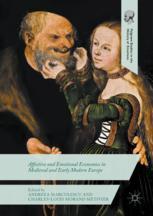

Most ebook files are in PDF format, so you can easily read them using various software such as Foxit Reader or directly on the Google Chrome browser.
Some ebook files are released by publishers in other formats such as .awz, .mobi, .epub, .fb2, etc. You may need to install specific software to read these formats on mobile/PC, such as Calibre.
Please read the tutorial at this link: https://ebookbell.com/faq
We offer FREE conversion to the popular formats you request; however, this may take some time. Therefore, right after payment, please email us, and we will try to provide the service as quickly as possible.
For some exceptional file formats or broken links (if any), please refrain from opening any disputes. Instead, email us first, and we will try to assist within a maximum of 6 hours.
EbookBell Team

5.0
28 reviewsThis book analyzes how acts of feeling at a discursive, somatic, and rhetorical level were theorized and practiced in multiple medieval and early-modern sources (literary, medical, theological, and archival). It covers a large chronological and geographical span from eleventh-century France, to fifteenth-century Iberia and England, and ending with seventeenth-century Jesuit meditative literature. Essays in this book explore how particular emotional norms belonging to different socio-cultural communities (courtly, academic, urban elites) were subverted or re-shaped; engage with the study of emotions as sudden, but impactful, bursts of sensory experience and feelings; and analyze how emotions are filtered and negotiated through the prism of literary texts and the socio-political status of their authors.